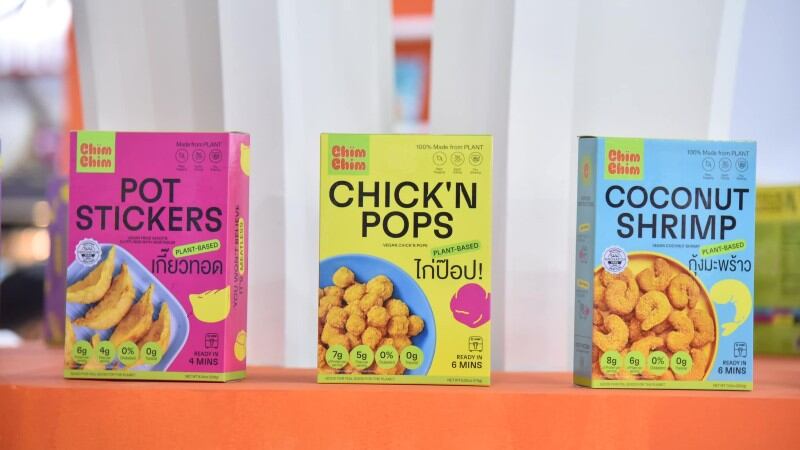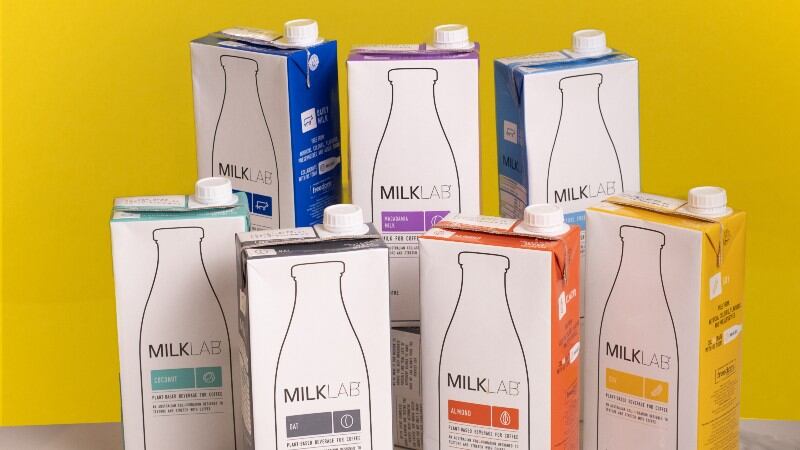Thai Coconut is best known for its beverages made from coconut milk or coconut water, but with the progression of the Thai food and beverage industry the firm has decided to step out of its comfort zone.
“The idea was that we wanted to expand and increase our product range, but still base our products on coconut,” Thai Coconut Strategic Marketing Manager Sirikanya Pushpavesa told FoodNavigator-Asia at the recent ThaiFex Anuga Asia 2023 event in Bangkok.
“Thai Coconut already has experience with using our coconut milk to develop products such as curries, soups, ready meal kits and so on – but we have decided to take this innovation a step further, by integrating coconut into the formation of plant-based meat and seafood.
“We have developed both an Asian range with items like shrimp dumplings, pork siu mai, potstickers and more; and a Western range with chicken pops, nuggets, and tenders as well as coconut shrimp and calamari.
“These are made with a combination of coconut with pea protein, pea fibre and soy protein, but true to utilising our expertise with using the whole coconut, we have also used dessicated coconut from the husk to make the coating for the calamari and shrimp, replacing the breading.”
Thai Coconut has just completed the construction of a facility focusing on the production of these plant-based meat and seafood alternatives.
“This is a completely new range for us and we are really just starting out, but based on what we have seen so far for the sector as well as our existing expertise, we do aim to enter supermarkets and export markets with these products,” she added.
“And we are not limiting our scope to only meat and seafood alternatives – one area that has seen less focus and we believe we can stand out is plant-based cream soups, which we have made with coconut milk.
“The concept behind these cream soups is convenience and ready-to-eat. These are sold in cans, and once poured out and microwaved or heated, they can be consumed at once without the need to add water or anything else.
“We have also developed this in a pouch form, which is of course even lighted than in the can format, making it easier to be brought around and even more convenient for consumers.”
Thai Coconut’s new plant-based cream soups will be available in six flavours: Cream, Mushroom, Celery, Potato, Pumpkin and Tomato.
Coconut challenges
Although Thai Coconut has remained a longstanding name in the coconut sector, Pushpavesa highlighted that the competition is strong in a region where coconut milk is very often used in various dishes.
“Coconut milk is a commodity and there is a lot of competition in this sector, with many factors influencing the market,” she said.
“Although the demand is certainly there as many consumers are used to using coconut milk in cooking and for consumption,Thailand is not the only country that produces coconuts, so there is in fact a lot of competition from neighbouring markets such as the Philippines, India, Vietnam and more.
“So it is in fact very risky to stick to just one product or area, and this is a key reason we are looking to diversify our portfolio.”





